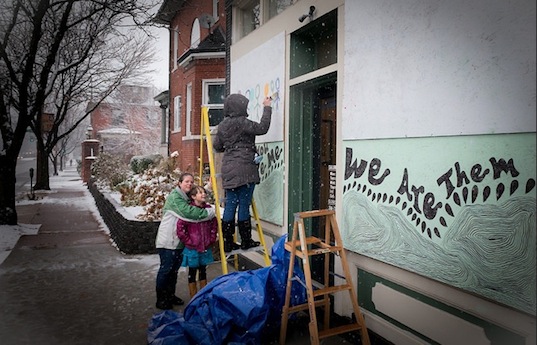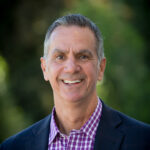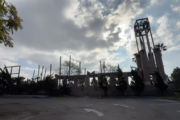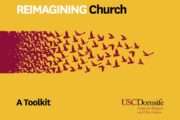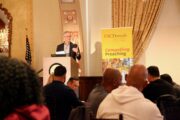As I watched nationwide protests flare after the grand jury’s decision not to indict Officer Darren Wilson of Ferguson, MO, I couldn’t help thinking that despite the progress Americans think we’ve made in the evolution of our racial consciousness, we really haven’t progressed much at all. In my lifetime I’ve witnessed—among other upheavals—the 1965 Watts riots, the 1992 civil unrest in the wake of the Rodney King beating trial and now the aftermath of Ferguson, all the result of the killing or assault of an unarmed African American man by white police officers.
I witnessed first hand the relationship between police and young Black men when I taught school in South Los Angeles in the early 1980s. On multiple occasions I was asked to verify to LAPD officers that young men from the school (or a sponsoring church) were students or members, and that they had a “legitimate reason” for being where the LAPD had observed them. Despite the fact that I clearly did not live in the neighborhood, I had the power to legitimate the presence of these young men at the school or church solely because I was a white man.
The role of religious groups in these events has been well documented, most notably in the aftermath of the 1992 upheaval in Los Angeles, where key figures in the faith community took the lead in developing partnerships and coalitions with a diverse set of faith and community organizations to “heal L.A.” Yet as necessary as those efforts were (and continue to be) for the mending of the social fabric of Los Angeles, they were reactions to events that were decades in the making—the desperate actions of people who felt powerless in the face of state-sanctioned discrimination and violence.
Implicitly acknowledging the persistence of such forms of injustice, several of the churches we’ve been observing as part of our religious innovation project have taken a more proactive stance in their approach to serving the communities in which they are located. These churches have intentionally grown themselves as ethnically and socioeconomically diverse congregations in order to reflect their social context, provide meaning for local individuals as well as families and serve the neighborhoods around them.
The number of multi-ethnic churches has grown steadily, if not dramatically, over the last decade or so. This partly represents the experiences of the mostly younger members of these churches, at least in Southern California: They have grown up in very diverse neighborhoods, their schools are mostly integrated and their friends are as likely to be Buddhist, Hindu, Jewish, Muslim or Sikh as they are to be Christian. Yet we are seeing a further expansion of these efforts to establish and grow multi-ethnic, economically diverse congregations that are intentionally “planted” in communities where these groups might not otherwise interact and the needs of the less fortunate are going largely unmet.
On the other hand, these churches usually promote fairly traditional forms of Christian theology and historical consciousness—for example, while actively opposing same-sex marriage is typically not part of the agenda, few of these congregations are open to performing gay or lesbian weddings. Rather, they intentionally seek ways to put their beliefs about Jesus and his message into practical action in response to important but relatively uncontroversial issues related to racial and economic injustice. These efforts range from the usual addiction-recovery, feeding and basic healthcare programs to the establishment of community centers for tutoring children and educating adults, “social enterprise” projects to provide jobs and work training that can lead to better employment opportunities.
Are these hyper-local, service-oriented groups charting the course for future faith communities? Only time will tell, but in my view the success of these churches is due in large part to their ability to tap into the basic desire of people to help and serve others, and simultaneously to provide innovative ways for congregants to fulfill these desires. If they are not revolutionizing Christianity, they are at least beginning to address forms of injustice that many churches have ignored in the past—and that seem likely to be with us for some time to come.
Photo Credit: William Eldin Willis/Flickr
Richard Flory is the executive director of the USC Center for Religion and Civic Culture.
